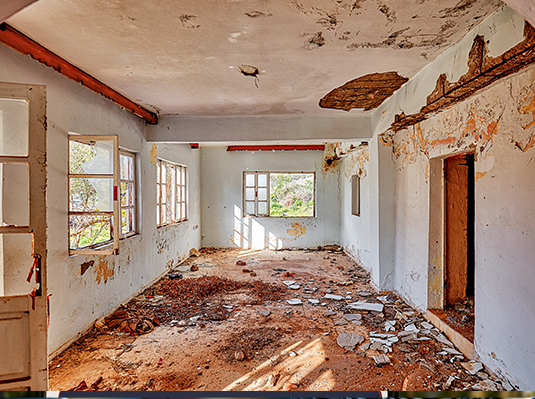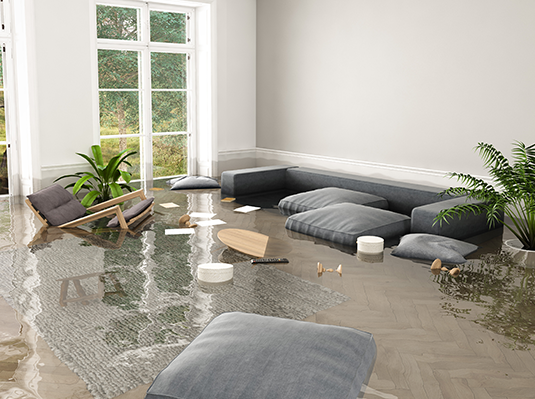
Know Your Hurricane Risk
Are you in an area that could be affected by storm surges or flooding? Understanding your specific area's hurricane risk can help guide decision-making around any necessary preparations that should be taken before disaster strikes. If you live in a coastal area, it is a good idea to figure out how far inland storm surges typically reach. Those living inland should also be aware of their surroundings and check if they lie in a region that may be prone to flooding during heavy rains. When it comes to getting educated on these things, be proactive. You don't want to wait until a hurricane is on the horizon to do your research on your area.
Create an emergency plan - this should include evacuation routes, what you need to bring, and what to do with pets
Emergencies can happen at any time, so it’s important to plan ahead. Creating an emergency plan is one of the best ways to prepare yourself and your family for unexpected situations. Your emergency plan should include evacuation routes and a meeting point in case you are separated, a list of necessary items that you need to bring such as your identification and personal documents, and a plan for pets. Most importantly, practice your plan regularly with everyone who is living in your home – this will ensure that everyone knows what needs to be done in the event of an emergency. Knowing that you have taken steps to prepare for potential challenges ahead will give you peace of mind.
Fortify Your Home
The force of a hurricane can cause tremendous damage to your home and personal property. Taking the time to prepare your house for extreme conditions beforehand can help to reduce potential damage. Here are a few areas to pay close attention to:
- Roof: Have your roof inspected before hurricane season and after each hurricane has passed through. A roof that is not structurally sound or has missing shingles can cause a ton of damage when coupled with high winds and heavy rain.
- Windows and Openings: Windows and other openings such as skylights are usually some of the most breakable parts of the home. Investing in hurricane-rated windows, storm shutters, or both can be a smart move for folks who live in coastal areas. If your home is not equipped with these upgrades, you may opt to use plywood as temporary substitute shutters.
- Outdoor Areas. Porches, Decks, Breezeways, Yards, Etc.: Check all around your home for anything that is not fixed into position. Loose chairs, toys, or tools can be thrown by strong winds creating projectiles that can lead to further damage to your property and the property of others. Items that are typically too heavy to be moved by wind should be considered as well since hurricanes will bring wind that is much stronger than that of typical rainstorms.
Stock up on supplies
Taking simple precautionary steps can save you a lot of trouble in an emergency. To be adequately prepared, it's important to stock up on supplies. Hurricanes typically bring strong wind, rain, and hail that can severely damage electrical, drainage, and transportation systems. This type of damage typically leads to extended power outages and difficulty with getting out to restock on necessary items. Make sure you stock up on some non-perishable food and plenty of bottled water. It is also wise to have flashlights, fresh batteries, lanterns, and a good first aid kit. Although it may require a bit of investment upfront, this preparation can be a lifesaver when the unexpected strikes.
Keep important documents safe
It's difficult to predict when a disaster might strike, but you can be prepared for the worst if you make sure to secure important documents before it happens. Scan copies of photos, birth certificates, passports, insurance information, and other valuable papers so that you have digital access to them at any time. If you have documents that must be kept in physical copies, it's a good idea to store them in a waterproof container like an airtight bag or safe. That way, even in the event of extreme weather, flood, or another disaster, your vital records will remain intact and accessible. Recreating personal identification documents can be a huge hassle, and lost photos are sometimes unrecoverable. Preparing ahead and taking just a few moments now can save you stress and anxiety later on!
Stay informed
In order to be as prepared as possible for an impending hurricane, it is critical that you stay informed. Keep up with the latest weather forecast and monitor local sources for updates on the storm's progress and any instructions from local officials. This includes listening out for and adhering to any government-recommended or required evacuation notices. By doing this, you are ensuring that you have the best understanding of what the hurricane may do, allowing for ample time to adjust plans and make necessary preparations. Staying informed about the hurricane is essential for safety so remain vigilant in tracking its location and progress.
In conclusion, hurricanes can have devastating consequences if you don’t take the necessary precautions. Knowing your hurricane risk and implementing an emergency plan are critical steps that could save you and your family in the event of a hurricane. Make sure to stock up on supplies and keep important documents safe before constructing a plan of action and then remaining informed throughout the process. No utility grid, cell phones, or internet? Establishing communication plans with friends and family could be one of the most important steps you would take in preparation for a hurricane. Don’t skimp on safety – prepare yourself and be ready for whatever might come your way!
The contents of this article are for informational purposes only. You should not act or refrain from acting based on this information without first consulting a Goosehead licensed agent at [email protected]. We disclaim all liability for actions taken or not taken by you based on the contents of this article which is provided "as is." Goosehead makes no representation that this content is error-free.


